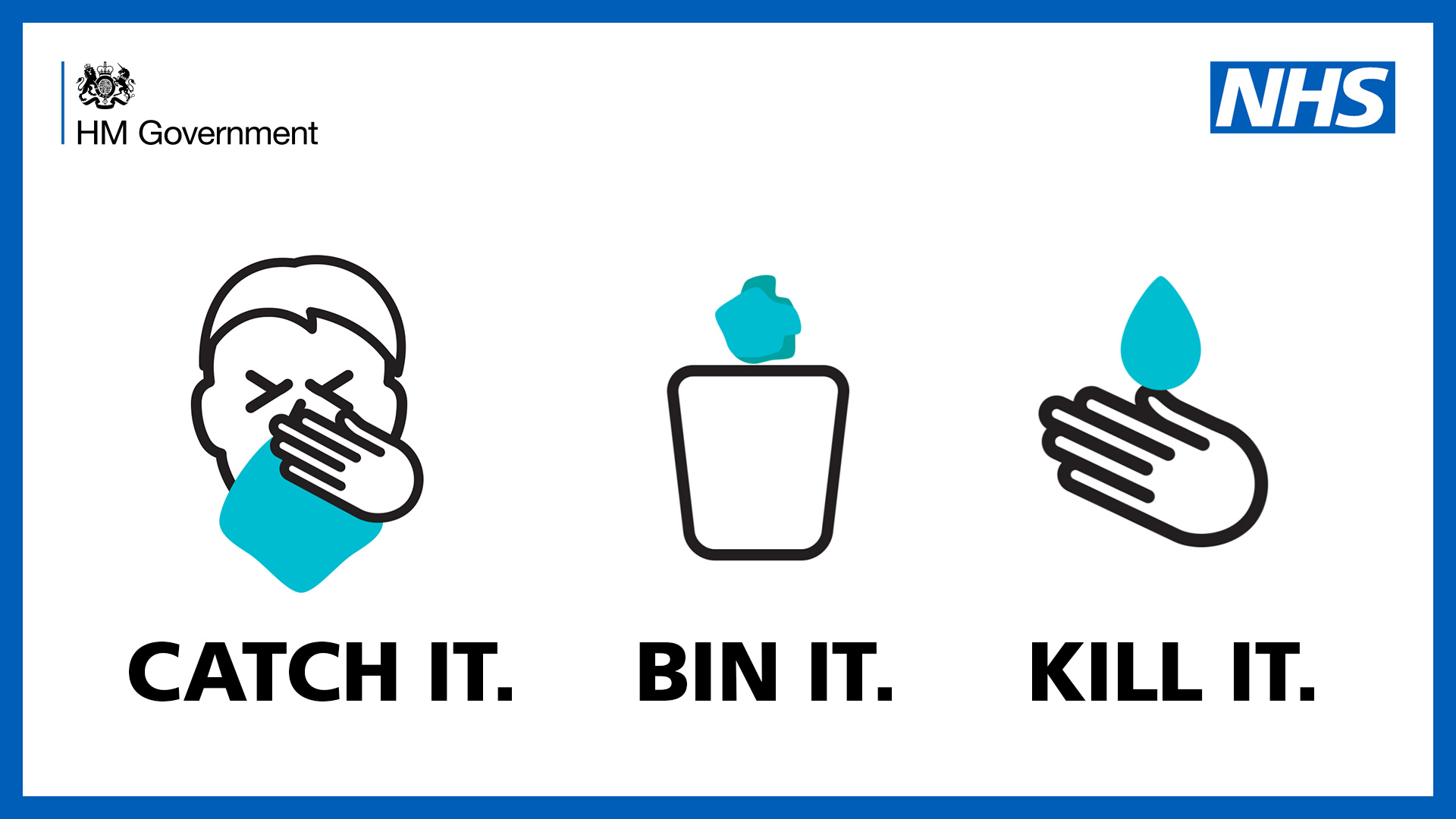
Feb 27th 2020
Coronavirus: Public Information [Updated: 25/03/2020]
Following on from the announcement by the Government on 23 March, the general public is advised to stay at home to help stop the spread of the Coronavirus (also referred to as COVID-19). This includes people of all ages – even if you do not have any symptoms or other health conditions.
You can only leave your home:
- to shop for basic essentials – only when you really need to
- to do one form of exercise a day – such as a run, walk or cycle, alone or with other people you live with
- for any medical need – for example, to visit a pharmacy or deliver essential supplies to a vulnerable person
- to travel to and from work – but only where this is absolutely necessary
Continue to stay at home if you have either:
- a high temperature – this means you feel hot to touch on your chest or back (you do not need to measure your temperature)
- a new, continuous cough – this means coughing a lot for more than an hour, or 3 or more coughing episodes in 24 hours (if you usually have a cough, it may be worse than usual)
To protect others, do not go to places like a GP surgery, pharmacy or hospital. Stay at home.
Only go outside for food, health reasons or essential work
- Stay 2 metres (6ft) away from other people
- Wash your hands as soon as you get home
Anyone can spread the virus.
Visiting Restrictions
The Trust, like the whole NHS, is working to help respond safely to the COVID-19 pandemic.
From midday on Saturday 14th March there will be no general visiting on any of our wards or departments except for parents of children, birthing partners, patients at end of life, and those who are unable to make decisions for themselves (in line with the mental capacity act regulations). In these cases the immediate next of kin will be able to visit and be with their relative. In order to help patients keep in contact with their relatives, we have put in place equipment so that telephone and video calls can be made. This is available on every ward.
From Monday 16th March a significant number of outpatient appointments will take place by telephone or through other technology, or may need to be rearranged. This is to help us to move staff into areas where they are most needed, but mainly to reduce the risks to you from avoidable travel.
| For BMEC Patients: If you are showing Coronavirus symptoms and have an urgent eye condition that requires emergency assistance please do not attend BMEC, but dial our nurse-led central phone line: 0121 507 4440. |
We are sorry for this inconvenience as we aim to limit the spread of Coronavirus. Please continue to follow the national guidelines on handwashing and what to do if you have symptoms.
If you are worried about the Coronoavirus
The Coronavirus outbreak may cause you to feel anxious, stressed, worried, sad, helpless, overwhelmed, confused or angry. It’s important to remember it is OK to feel this way and that everyone reacts differently to different events.
You can find a number of tips to ease any anxiety and help your mental wellbeing here.
Testing
Testing will not be offered routinely to individuals staying at home.
Patients who require overnight admission to hospital should still be tested regardless of travel history if they present with
• either clinical or radiological evidence of pneumonia
or
• acute respiratory distress syndrome
or
• influenza like illness (fever ≥37.8°C and at least one of the following respiratory symptoms, which must be of acute onset: persistent cough (with or without sputum), hoarseness, nasal discharge or congestion, shortness of breath, sore throat, wheezing, sneezing)
Clinicians should be alert to the possibility of atypical presentations in patients who are immunocompromised.
NHS 111
Up to date information can be found on http://www.nhs.uk/coronavirus. We expect the health service to be exceptionally busy in the coming days and weeks. If people have serious symptoms that they cannot manage at home they should use NHS 111 online. They should only telephone NHS 111 if they
cannot go online.
Full guidance on staying at home and away from others
You can find the latest information and advice from Public Health England at www.gov.uk/coronavirus with further information available on nhs.uk.
Like the common cold, coronavirus infection usually occurs through close contact with a person with novel coronavirus via cough and sneezes or hand contact. A person can also be infected by touching contaminated surfaces if they do not wash their hands.
Everyone is being reminded to follow Public Health England advice to:
- Always carry tissues with you and use them to catch your cough or sneeze. Then bin the tissue, and wash your hands, or use a sanitiser gel.
- Wash your hands often with soap and water, especially after using public transport. Use a sanitiser gel if soap and water are not available.
- Avoid touching your eyes, nose and mouth with unwashed hands.
- Avoid close contact with people who are unwell.
Guidance Posters
English
Română/Romanian
Jezyk Polski/Polish
Hindi
বাংলা/Bengali
Arabic / اللغة العربیة
Urdu / اردو
Shqip / Albanian
